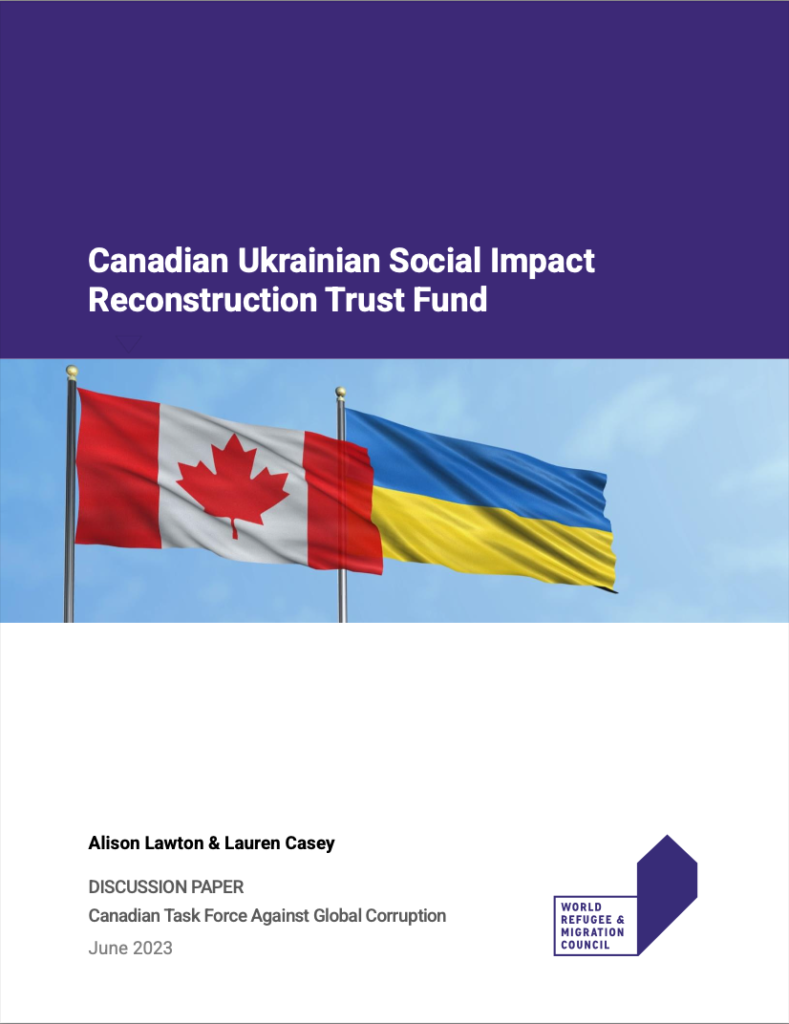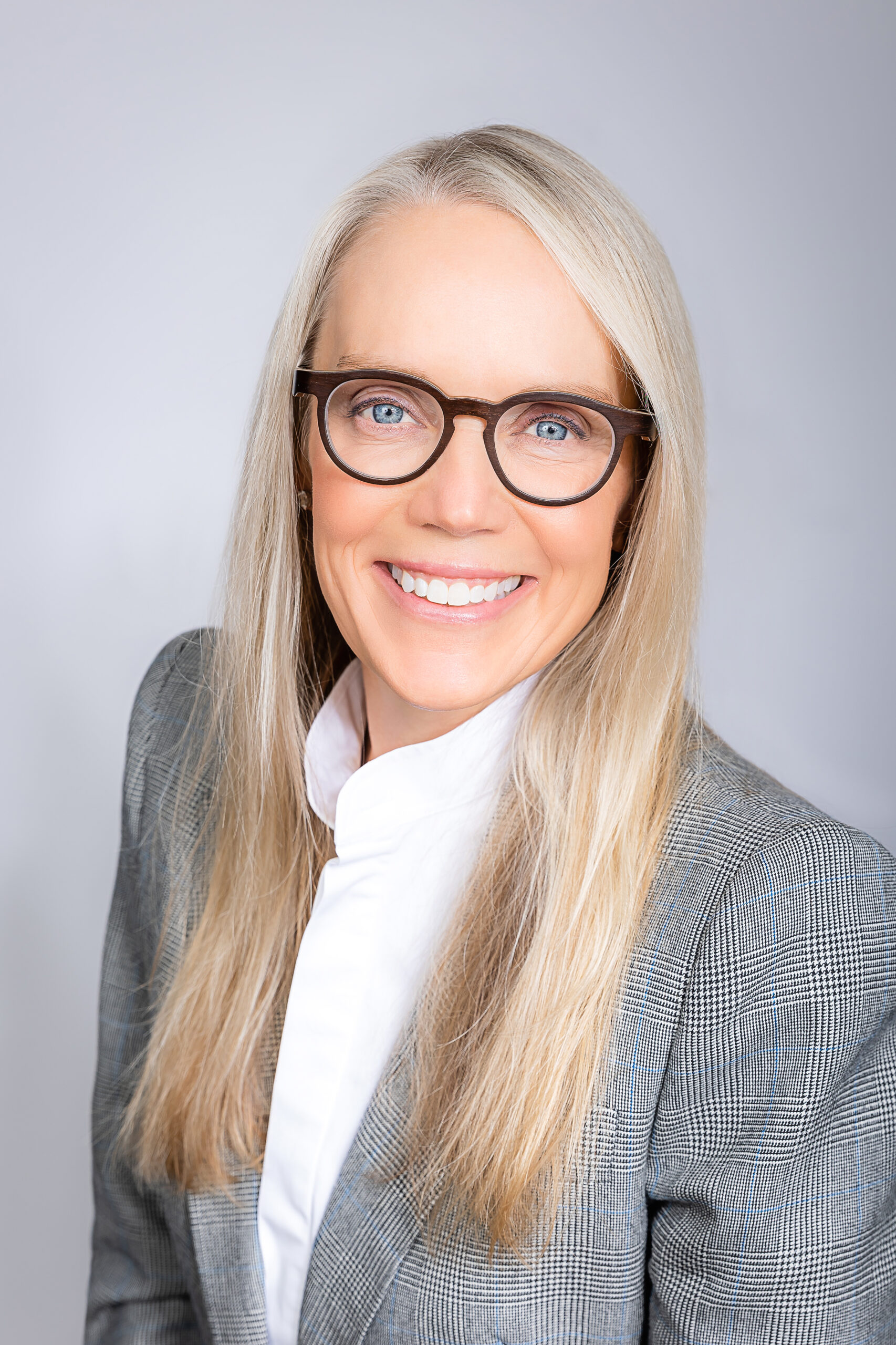Alison Lawton & Lauren Casey
Discussion paper produced as part of the World Refugee & Migration Council’s Canadian Task Force Against Global Corruption.

Abstract
According to international law, Russia must provide full reparations and compensation to Ukraine for the harm inflicted during an undeclared war. In response, Canada has enacted legislation allowing for the seizure and confiscation of Russian assets that can be utilized to provide reparations for Ukraine and assist its citizens. This paper suggests the establishment of a charitable social impact fund as a trust (the “CU Trust”) to utilize these assets and aid reparation and compensation to Ukrainians (the capital funds, once realized and held within the CU Trust, are referred to as the “Asset Pool Fund”).
A specific focus will be on supporting the most vulnerable members of Ukrainian society, such as women, children, LGBTQ2 people, persons with disabilities, and veterans (i.e., seriously wounded veterans). Such a disbursement would be consistent with the longstanding human security tenet of Canada’s foreign policy, which, under Prime Minister Trudeau, aspires for Canada “to be a global leader in championing the rights of women and girls in all their diversity, LGBTQ2 people and other marginalized communities.”[1] The CU Trust will have a reconstruction mandate and a social impact[2] focus. It will support longer-term projects and initiatives that aim to create positive social and economic impact through several different financial mechanisms (“Social Impact Grants” or “Grants”, as well as more traditional “Investments”). These Grants and Investments would be offered to entities and organizations that work on issues such as education, healthcare, poverty alleviation, and environmental sustainability. The aim is to support projects and initiatives with lasting reparations for communities and address systemic reconstruction issues.
Through an operating mechanism, the CU Trust would distribute Social Impact Grants or Investments, out of the Asset Pool Fund in Canada and Ukraine, as direct and progressive investments in the reconstruction of Ukraine. The Grants will focus on humanitarian projects to support peacebuilding, stability and community development,[3] further supporting Canada’s emphasis on Human Security[4].
While the possibility of establishing a Global Fund is being explored, Canada has the option to develop a national fund proactively and set a global precedent until the creation of any such worldwide fund is finalized. These initiatives are not viewed as conflicting alternatives but rather as complementary.
Key Points
- Establish a registered trust, possibly called the Canadian Ukrainian Social Impact Reconstruction Trust Fund, to manage the Asset Pool of Funds from the disposition of Russian assets.
- Overseen by independent, notable, experienced investment and social impact fund management, with an emphasis on hiring Ukrainians.
- The CU Trust will provide funds to make both simple Grants (approx. 50% of the Asset Pool Fund) and to make larger ‘investment-type’ grants (some requiring multiple rounds or ‘follow-on’ investments) to organizations in Canada and Ukraine to support the most vulnerable of Ukraine in the areas of education, healthcare, poverty alleviation, and environmental sustainability and support economic stability and to support victims of Russian aggression, including wounded or disabled veterans.
- Backing Ukrainian entrepreneurs and charities whose enterprises and endeavours promote the rebuilding of society and economy, as well as promoting peace and Human Security. Social impact investments have a powerful multiplying effect, particularly when compared to development aid, among other forms of assistance.
- Because of the dual impact mandate and associated expertise, the CU Trust will have two divisions in its associated management company: one conducting Social Impact Grants and processing a wide range of applications in an expeditious and limited fashion and the second making larger Grants or investments in medium or long-term reconstruction projects or socio-commercial endeavours that support Human Security and provide a sound financial basis for economic stability.
[1] https://pm.gc.ca/en/mandate-letters/2021/12/16/minister-foreign-affairs-mandate-letter?TSPD_101_R0=0829fbd9ceab2000ae1448df01fd43435acf430d1a018fcfd002bece99db76c0f4e4f05cd4bd39b00807f837c81430007af9c7d498c9e968cb54457086da4e74a47811f60057a8521c7682ad28584a6bc826e58d79bb095cdd84dcdb27acc369
[2] Social impact investing involves making investments that generate both social and financial returns, allowing investors to generate a positive return on their investments while also achieving positive social outcomes.
[3] https://www.international.gc.ca/world-monde/issues_development-enjeux_developpement/peace_security-paix_securite/index.aspx?lang=eng
[4] United Nations resolution 66/290, “human security is an approach to assist Member States in identifying and addressing widespread and cross-cutting challenges to the survival, livelihood and dignity of their people.” It calls for “people-centred, comprehensive, context-specific and prevention-oriented responses that strengthen the protection and empowerment of all people.”


